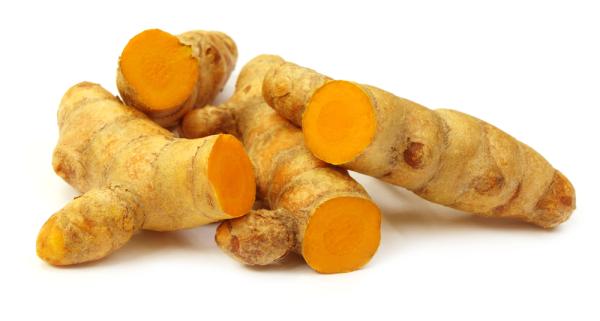A Google search of the term “turmeric” yields well over 36 million links (full disclosure: I did not read them all). There have been over 15,000 papers published on turmerin and curcumin, its active ingredient, and more are published all the time. Why all this interest in something derived from a kind of weird-looking rhizome (a rhizome is an underground stem, not a root). Well, this golden spice ingredient has been used for centuries in Indian cuisine (think curries) and in traditional Chinese medicine (TCM). It has been labeled “one of nature’s strongest anti-inflammatory plants”, and supposed via that mechanism is a helpful topical compress for muscle strains and injuries as well as a useful anti-cancer agent when taken internally. Some have touted it for supposedly being better than prescription drugs for: depression, chemotherapy, high cholesterol, diabetes, anti-inflammatories — you get the picture. And not only that, it is now available in organic supplements!
But aside from those who stand to profit from supplement sales, what’s the real story? Dr. Axe, who sells turmerin-containing aupplements, for example, says there are upwards of 6000 studies that prove (my emphasis) that turmeric is effective. Some medical chemists, however, beg to differ.
Writing in the Journal of Medicinal Chemistry, Dr. Kathryn M. Nelson from the University of Minnesota and colleagues searched the relevant scientific literature to ascertain whether there is indeed any reason for believing that turmeric or curcumin might be an effective remedy for anything.(1) The authors noted that there have been over 120 clinical trials of curcumin and related compounds; but no double-blinded, placebo-controlled clinical trial has been successful. In fact, they have labeled it an IMP — an “invalid metabolic panacea”.
There is evidence that curcurmin is, both in vitro and in vivo, unstable compared to commercial drugs. They have likened it to “a missile that continually blows up on the launch pad, never reaching the atmosphere or its intended target(s).”
And in terms of reaching a target, apparently curcumin is not well absorbed from oral doses, since it couldn’t be detected in the blood serum of participants of clinical trials — no matter how high the dose. Further, however much is absorbed is quickly modified by enzymatic processes in the liver. In rats, at least, the majority of an oral dose was excreted in the feces — also indicating poor absorption.
When patients with advanced colorectal cancer were dosed with curcuminoids daily for periods up to 4 months, there were no decreased levels of tumor markers or cholesterol seen. On the positive side, the only adverse effect noted was mild diarrhea. Curcuminoids were also examined with respect to colon cancer, and Alzheimer’s disease, with no benefits in either case.
In their summary of their findings, Dr. Nelson and colleagues concluded
“no form of curcumin, or its closely related analogues, appears to possess the properties required for a good drug candidate (chemical stability, high water solubility, potent and selective target activity, high bioavailability, broad tissue distribution, stable metabolism, and low toxicity). The in vitro interference properties of curcumin do, however, offer many traps that can trick unprepared researchers into misinterpreting the results of their investigations.”
So sorry, Dr. Axe, I don't know what your 6000 clinical studies were like, but this careful review of the literature certainly doesn't support the effectiveness of turmeric or curcumin against pretty much anything. Except, perhaps, a strong craving for curry.
(1) J Med Chem. 2017 Mar 9; 60(5): 1620–1637.Published online 2017 Jan 11. doi: 10.1021/acs.jmedchem.6b00975




